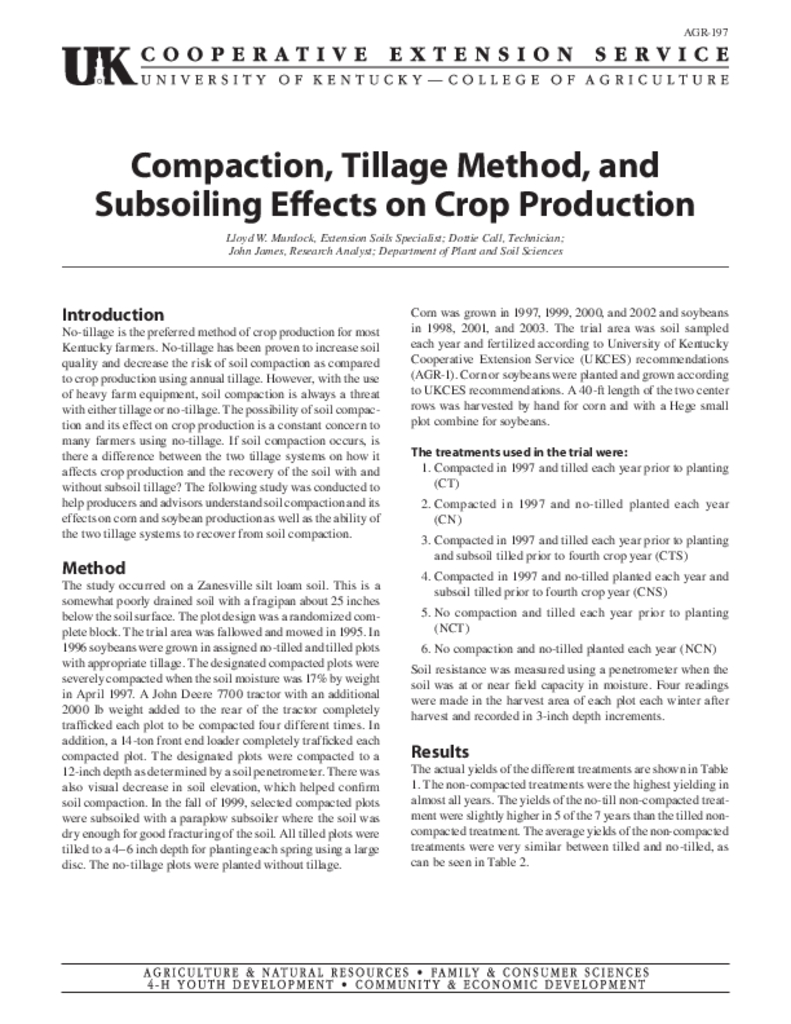Compaction, Tillage Method, and Subsoiling Effects on Crop Production
Compaction, Tillage Method, and Subsoiling Effects on Crop Production
Authored by: Dottie Call John James Lloyd Murdock
Abstract
many farmers using no-tillage. If soil compaction occurs, is there a difference between the two tillage systems on how it affects crop production and the recovery of the soil with and without subsoil tillage? The following study was conducted to help producers and advisors understand soil compaction and its effects on corn and soybean production as well as the ability of the two tillage systems to recover from soil compaction.
Core Details
Publication ID
AGR-197
Status
Publication Date
January 11, 2008
Series
Multi-Part Series
N/A
Categorical Details
Language
Peer Reviewed?
Yes

